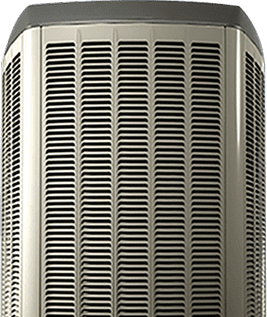How Often to Replace Furnace Filter?

Many of us are often aware that our furnace filters require replacement, yet we often fall short in taking the necessary steps to actually carry out the replacement. This is particularly the case when our furnaces are functioning smoothly, effectively maintaining the desired indoor temperature – we don’t often think that we need to do anything until something breaks. The question arises: do you need to replace your filters, and how often?
Knowing when to maintain your furnace can be daunting, which is why the team at Mersey Heating and Air Conditioning is here to help! We’re available 24/7/365 days a year including after-hours, weekends, and holidays at no extra charge! Leave the hard work to our technicians knowing we’ve got you covered–book your maintenance appointment today!
What are Furnace Filters?
Consider your home’s furnace filters as vital tools within your HVAC system, shielding your indoor air quality from the accumulation of dust and debris that would otherwise detriment the health of your living space. Whether called “air filter” or “furnace filter”, both essentially convey the same purpose. The role that these filters have involves the purification of your home’s air. Ultimately, ensuring consistent replacements and maintaining their cleanliness is a crucial element in upholding the well-being of your HVAC system, and by extension, safeguarding the health of every resident in your household (or occupant of your building!)
The main roles of a furnace filter in your home or building is as follows:
- To capture airborne particles, capturing things like dust, pollen, mould spores, pet dander, and other contaminants. This enhances indoor air quality by mitigating the presence of irritants and allergens.
- To extend furnace life, as the prevention of dust/debris accumulation on HVAC components helps to maintain the health of your healing and cooling equipment. Less risk for breakdown, longer chance your HVAC will last for more time.
- To support a healthy indoor environment, by removing contaminants that can otherwise contribute to allergies, trigger asthma, or even other common respiratory issues. The cleaner the air, the better the occupants’ wellbeing.
- To mitigate odours by snagging particles that carry odours, promoting better indoor air and a more pleasant living environment.
How often should I change my furnace filter?
Whether or not to replace your furnace filter hinges greatly on the specific furnace filter type that you have – or, more specifically, the width of your furnace filters. It’s likely that your original filter’s packaging contains guidance from the manufacturer regarding the suggested replacement intervals. Naturally, if your household is particularly dusty, is home to smokers, if anyone deals with allergies, or accommodates shedding pets, you might need to tweak the frequency of the replacements that you make. Below, you’ll find the typical filter change schedule categorized by size:
- 1 to 2-inch filters will need to be changed every 1 to 3 months.
- 3 to 4-inch filters will need to be changed every 6 to 9 months.
- 5 to 6-inch filters will need to be changed every 9 to 12 months.
The role your furnace filters fulfill is beyond important for both your indoor air quality and HVAC system. When an air filter becomes laden with dirt, the consequences can extend to jeopardizing your energy expenses, the efficacy of your HVAC setup, and even the health of your loved ones. A dirty filter significantly may increase the likelihood of inflated energy costs, while also impacting the operational efficiency of your HVAC system, causing it to operate with the added strain of having to push dirty air through and circulate it.
How often should you replace your furnace filter in the winter?
The winter is when you’ll be using your furnace the most, and therefore likely needing to change it even more. However, the frequency of changing a furnace filter in winter remains dependent on various factors, such as the type of filter being used, the condition of your indoor air, and the specifics of your heating system – the same as any time of the year. Generally, during the winter months when the furnace is operating more frequently, it’s recommended to check your filter’s condition every 1 to 2 months. This doesn’t mean that you have to replace it frequently, but you should be assessing its condition more regularly.
If you have a standard 1 to 2-inch filter, changing it every 1 to 2 months is advisable. However, if you’re using a high-efficiency filter or a thicker filter, you might be able to extend the replacement interval to around 2 to 3 months.
Again, it’s worth noting that certain factors can prompt more frequent filter changes. If you have shedding pets, live in an area with high dust levels, or have family members with allergies, you might need to replace the filter more often to maintain optimal indoor air quality and heating system efficiency.
Inspecting your filter’s condition and responsiveness to airflow is key. If the filter appears clogged, dirty, greying, or even fuzzy, it’s a good idea to make a replacement – even if that replacement happens before the 1-2 month mark.
Do you really need to change a furnace filter every 3 months?
The guideline for “three months” can be misleading based on the furnace filter variety in use. For conventional 1 to 2-inch filters, adhering to the 1-3 months replacement cycle is the best recommendation. Neglecting this routine maintenance can give rise to a host of possible safety concerns, such as issues like blockages, overheating, short cycling (which may lead to inconvenient furnace shutdowns during critical times), and even fire hazards. It’s worth noting that many cases of residential fires have been attributed to clogged filters.
A furnace filter’s primary purpose, that of capturing airborne particles like dust, debris, and hair, becomes compromised once the filter becomes excessively dirty.
If you need assistance with changing your furnace filter or would like to discuss different HVAC options, contact us today!
